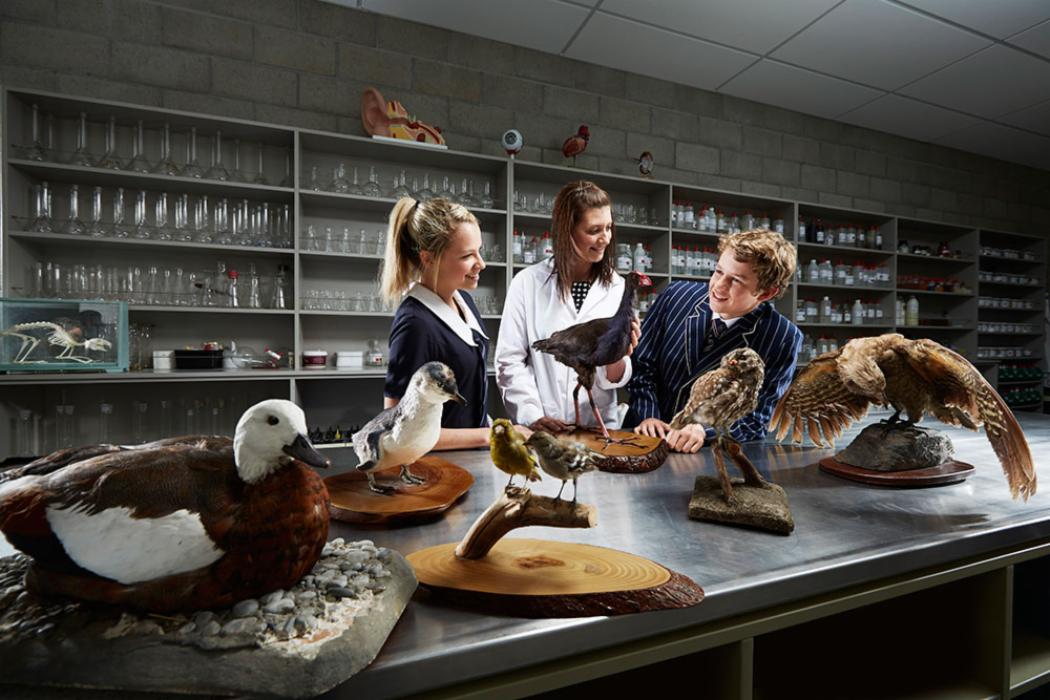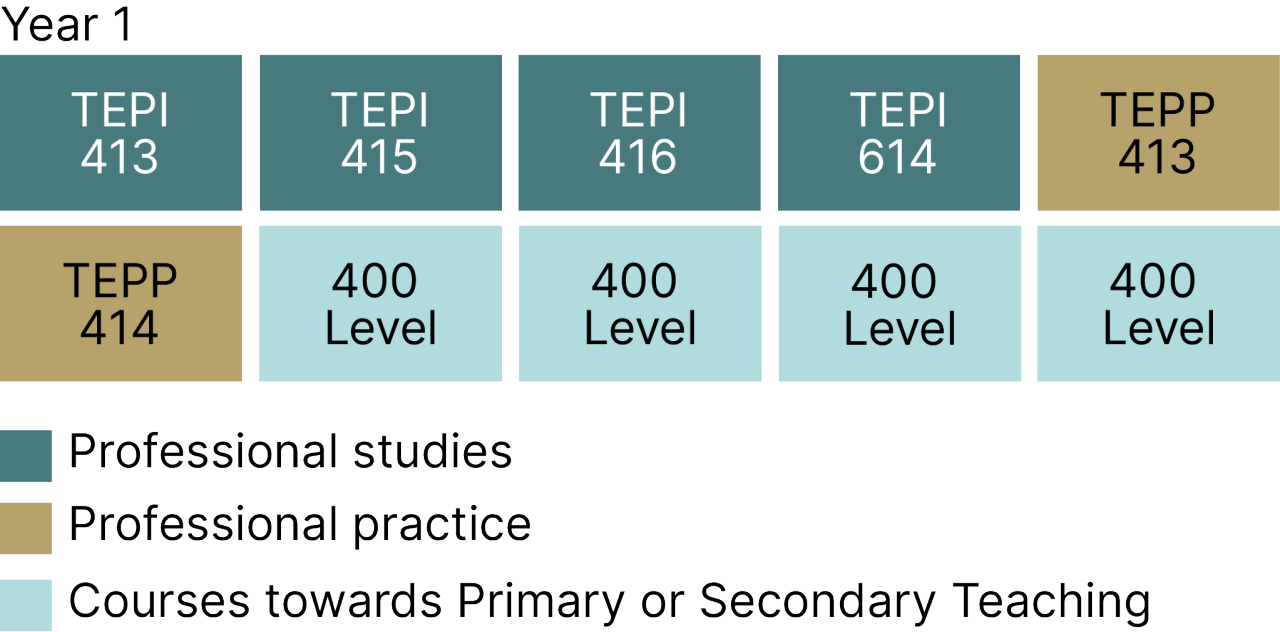Postgraduate Diploma in Teaching and Learning
- Degree Structure - Start In
- January

UC's Postgraduate Diploma in Teaching and Learning (PGDipTchgLn) combines research-informed knowledge and critical inquiry with professional placements to prepare you for a career in teaching. Learn more about studying a PGDipTchgLn through our Te Kaupeka Ako | Faculty of Education.
150
The PGDipTchgLn combines research-informed knowledge and critical inquiry with professional placements to prepare you for a career in teaching.
You will have the opportunity to gain knowledge of teaching, learners and curriculum, engage in professional practice in schools, and become part of the teaching profession in Aotearoa New Zealand.
You will learn skills such as communication, critical thinking, planning and design for learning, and culturally responsive teaching.
The Postgraduate Diploma is endorsed in either Primary or Secondary Education. Both endorsements are internationally recognised professional qualifications, leading to teaching opportunities globally. You will meet Matatū Aotearoa | Teaching Council of New Zealand teaching standards and will be eligible to apply for registration and certification with the Teaching Council as a school teacher.

Applicants for the PGDipTchgLn programme will need an Aotearoa New Zealand bachelor's degree with a B Grade Point Average in their 300-level courses (or other qualifications of an equivalent standard).
Those entering the Secondary Education endorsement will need previous studies in a subject relevant to the Aotearoa New Zealand secondary school curriculum eg, te reo Māori, English, biological sciences, mathematics, history, physical education, etc.
Those wanting to enrol in the Primary endorsement will need to demonstrate their mathematics capability. Find out more about the proposed mathematics entry requirement for primary ITE programmes.
You will be approved for entry on the recommendation of a Selection Committee. Selection for entry is based on:
If English is your additional language, you are also required to meet the requirements set out by Matatū Aotearoa | Teaching Council of New Zealand.
For the full entry requirements, see the Regulations for the Postgraduate Diploma in Teaching and Learning or use the admission requirements checker.
Applications are open throughout the year and close 1 December for domestic students or 31 October for international students.
For more details on entry requirements and the teacher education application process, see the Guide to Applying.
The PGDipTchgLn consists of 150 points of coursework and includes 80 days of professional practice in schools.
The Primary endorsement pathway can be studied full-time in one year on campus or via distance. We also offer a part-time option over two years for distance students only. Distance students complete the same courses, coursework, and assessments as on-campus students.
Distance students are required to attend an On-site Intensive (OSI) in Ōtautahi Christchurch at the beginning of the programme. OSIs are a compulsory part of the distance programme and provide an opportunity to meet and work with course lecturers and other students. You will need continual access to a computer with suitable broadband internet to complete this qualification.
The Secondary endorsement pathway can be studied full-time in one year on campus.
You are required to list at least one teaching subject in your online application. Confirmation of teaching subjects will be determined as part of the selection process and confirmed at the point of offer.
For full requirements, see the Regulations for the Postgraduate Diploma in Teaching and Learning.
All students for the PGDipTchgLn complete the following:
Students in the Primary endorsement also complete the following:
Students in the Secondary endorsement also complete the following:
Secondary Education - specialist teaching subjects
For our secondary teacher qualifications, you will need to choose a teaching subject and have an academic background in this subject. Your teaching subject is chosen from those taught at junior and senior secondary levels.
You will focus on your specialist teaching subject (which you will preferably have studied to 300-level). It is also a good idea to pick up an additional teaching subject, for which you have a background of study to 100 or 200-level (depending on the subject).
We offer the following specialist teaching subjects:
Secondary Education — additional subjects
For our secondary teacher qualifications, you will also need to choose an additional teaching subject, for which you have a background of study to 100 or 200-level (depending on the subject).
Additional teaching subjects are usually junior subjects (years 7—10), these include:
Additional senior social sciences subject are only available where junior Social Studies is already part of your specialist teaching subject:
Additional senior Health, OE, and PE subjects are only available where junior HPE is already part of your specialist teaching subject:
Additional senior sciences subjects are only available where junior Science is already part of your specialist teaching subject:
To specialise in any of the above teaching subjects, you will need to take one of:
If you do not have the background for one of these additional teaching subjects, you can take a course from the Primary Education endorsement schedule above, or an approved course elsewhere at UC.
2024 tuition fee estimate: $10,230 (150 points)
2025 tuition fee estimate: $10,844 (150 points)
2024 Special Programme Fee: $38,625 (150 points)
2025 Special Programme Fee: $40,500 (150 points)
2026 Special Programme Fee: $42,500 (150 points)
The PGDipTchgLn is a pathway to the Master of Teaching and Learning (MTchgLn). By completing the PGDipTchgLn plus an additional 30-point course, you can achieve the MTchgLn.
You may choose to go onto postgraduate studies which further examine the role of teaching in children's lives and the ways and methods in which they learn, or critically analyse educational policies and systems of practice.

Each small block represents a 15-point course. However, some courses may be 30 points or more.
This diagram is an example only – other combinations are possible. For specific course requirements, see the Regulations for the Postgraduate Diploma in Teaching and Learning.